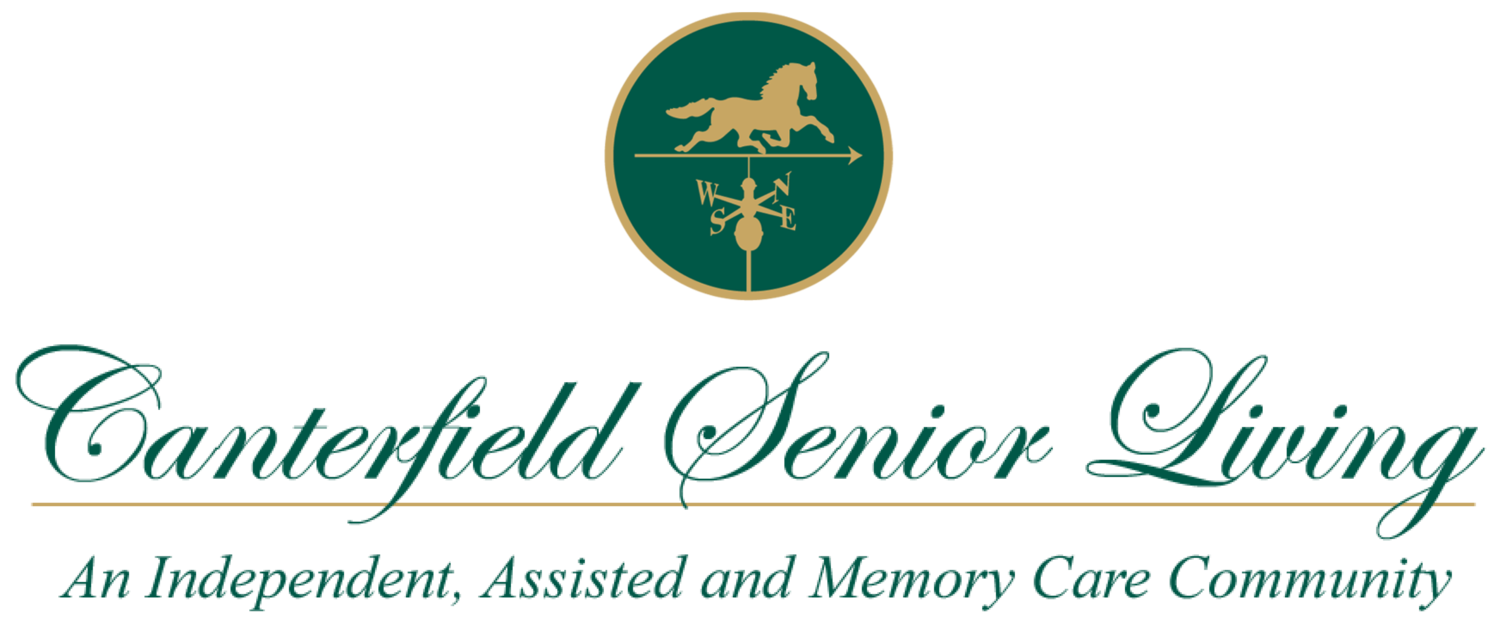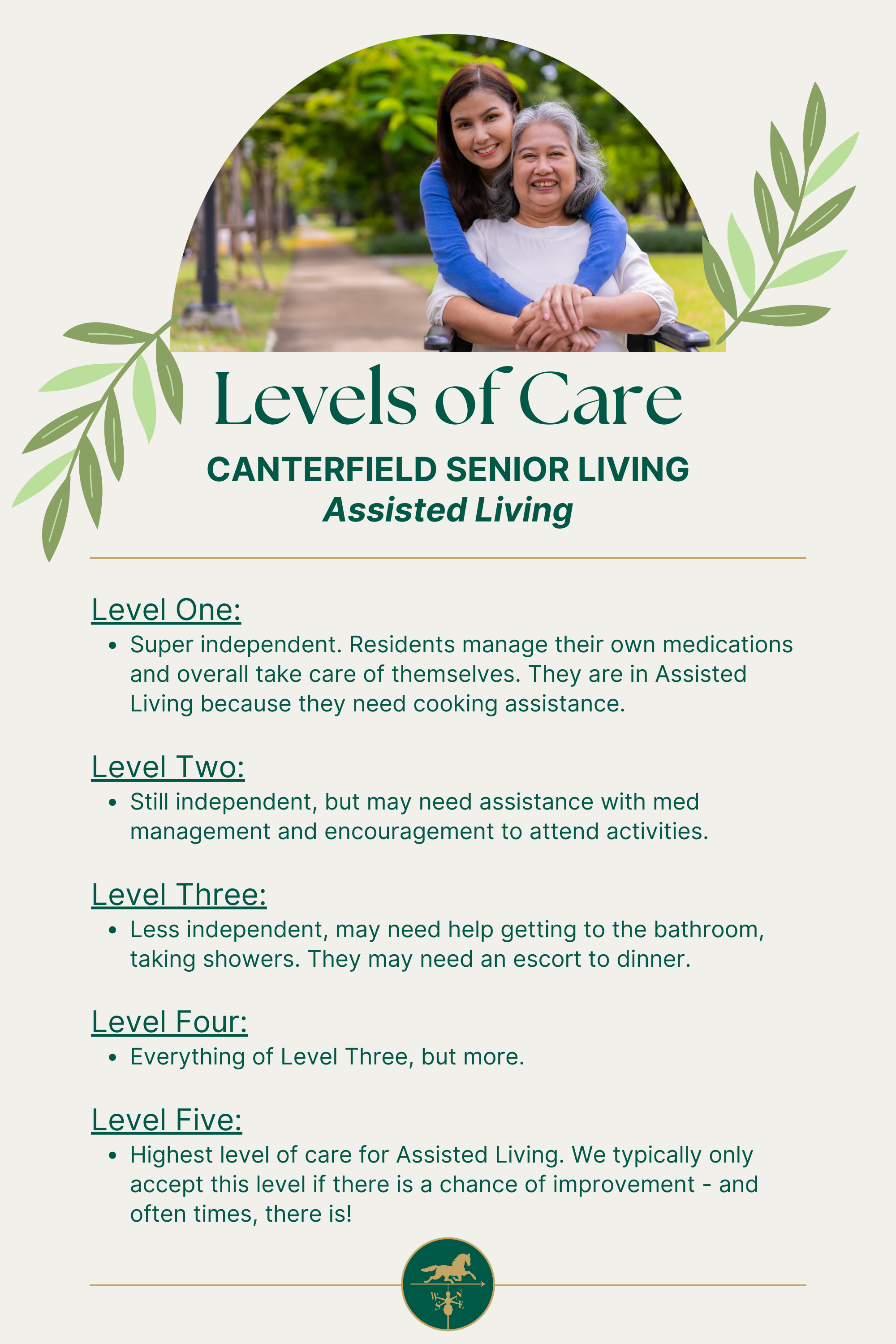Nursing & Healthcare at Senior Livings
An Interview with Our Director of Nursing
We met with Kate Ellington, the new Director of Nursing at Canterfield of Kennesaw, to learn more about what the residents need from the nurses on staff, what types of care is typical, and any tips seniors can take with them to stay healthy.
To start, give us a little background about you.
I’ve been a nurse for 12 years. I did six years as a Flight Nurse in the Air Force: two years active, four years reserve. I got my Bachelor’s of Science in Nursing from California State and my Masters of Public Health from Harvard in specialized populations and epidemiology as it relates to them, and elders are my specialized populations. All of the MedTechs work underneath my license.
What, specifically, do the residents need from you?
We have five levels of care.
Level One is super independent. They do everything themselves. They usually manage their own medications, they can do their laundry. They are in Assisted Living mostly for social stimulation.
Level Two may still be independent, but may need help with their meds and they may need a little bit of encouragement to attend activities. Activities is a big thing because it’s enrichment. It’s life enrichment.
Level Three is gonna be getting into higher levels of care. These are the people that probably need assistance to go to the bathroom, need an escort to dinner, help with showers.
Level Four is that with more.
Level Five is our highest level of healthcare. For example, if you’re coming from a skilled nursing facility, you can only stand and pivot, you need total care, but say, you’re in therapy and have a positive prognosis for improving, then because we’re an age-in-place facility, we may take the risk of a Level 5. Our goal is to keep them here; we want them to be in their home and be comfortable.
The reason we have a nurse on staff is because we have to oversee the med management. You also need someone in the building in case something happens, someone doesn’t feel well, someone’s having chest pains. The state does limit my scope of practice here because we’re Assisted Living. So I can do wound care and I can take stitches out, but I can’t do that here. At Canterfield, I can assess, I can medicate, I can do basic wound care.
Do you have any tips for seniors to stay healthy?
I think reminding people that movement is good is really important. I have a bad knee, I’m waiting on knee surgery, but I swim and I play pickle ball and I am still active. If you stop using your body, it just basically gives up. I had an assistant living resident who desperately wanted a wheelchair and I said, “Absolutely not. You will never leave that wheelchair,” and I made him keep walking and he did great.
It’s important to remember that you have to have a special type of personality to work with older people. I love them because they tell you exactly how they feel when they feel it. But you get attached to them too, and they are a vulnerable group. They are one of our most vulnerable populations. My grandma died two weeks ago and my residents gave me so many hugs. They were like, “We’ll be your grandparents now.” They just collect you and bring you into them — even the ones that are sassy!
What we have to remember is — in Memory Care, you have to meet them where they are because, in their mind, they might be 22 and it’s 1963. In Assisted Living, you have to walk that line of respecting them as an adult because they have resident rights, but also being able to be firm and tell them no. I can’t let them handle their own medications or do something that will put my license or their safety at risk!
What do you enjoy doing most at a Senior Living?
I really like the connections that we get with the families. I also am really good with hospice patients and end-of-life care. I think it’s because I’m able to connect with the families and the residents.
I also like it when a resident comes in as a Level Five and we get them down to a Level One or Two, and they’re zooming around the property, I’m getting high-fives. That’s a big win for us.
Thanks so much for talking with us, Kate!


